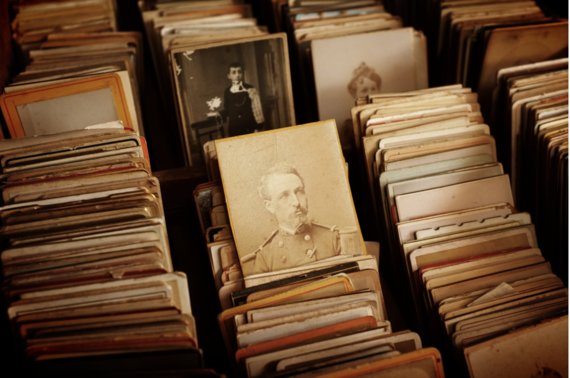Memories, having the power to remind us of the times in our life's experiences, can be wonderful. They may also take us back to events that we'd like to forget. But, considering how often our minds replay those memories, it may become apparent that it is not the recollections that are so vividly recalled, but the emotions they evoke.
The thrill of an exciting adventure, the keen disappointment when something didn't go our way, the relief when the "worst possible outcome" was avoided.
Some of those memories, and their strongly associated emotions, shape who we become. For example, when, as a young child, I tripped and fell down a flight of stairs while carrying an encyclopedia, I was afraid my parents were going to be upset that I had hurt that encyclopedia. But, instead of anger, I was told, while receiving a gentle hug, "We can always get another encyclopedia, but there will never be another you."
Such a small thing, really, but, for me, it was huge, both literally and figuratively. From that point on, regardless of whatever mischief in which I involved myself, I knew I was loved unconditionally. I knew that, even if my parents were mad at me or didn't like something I had done, even if they were extraordinarily disappointed in me, they would still love me. And, still, today, I can always say I felt safe, loved and protected growing up in my family.
It is true; not every memory sparks such warm, loving emotions. But I think that's part of the reason the special, positive events need to be preserved.
As part of the mindfulness classes I teach, there are always discussions of appreciation and gratitude. We have conversations about why it is important to notice, and remember, all the good things that come our way, as well as appreciate the negatives that we were lucky enough to avoid. With the adults in my groups, we also talk about how they have coped with their greatest losses or disappointments; this is particularly true when someone passes away.
A practice that has enabled many to reduce the focus on anguish after losing a loved one, and has helped replace that heartache with happiness, involves creating a written collection of the special stories associated with the person who passed away. Anything involving that person that made them laugh, brought a smile to their faces, any tender moment in time. These are the stories to be cherished and passed down from one generation to the next.
Stories that showed strength of character, loyalty or honesty are stories that can serve as examples to which others may wish to aspire. Recounting displays of positivity, generosity, consideration, or tact can also be the foundation for teaching values for others to emulate. Finally, taking the time to pause and really value each of the events that pass our way, rather than just moving mindlessly from one moment to the next, can ensure that we really experience life, instead of failing to see the ties and connections that truly prove the connectedness of us all.
What memory will you create today?
